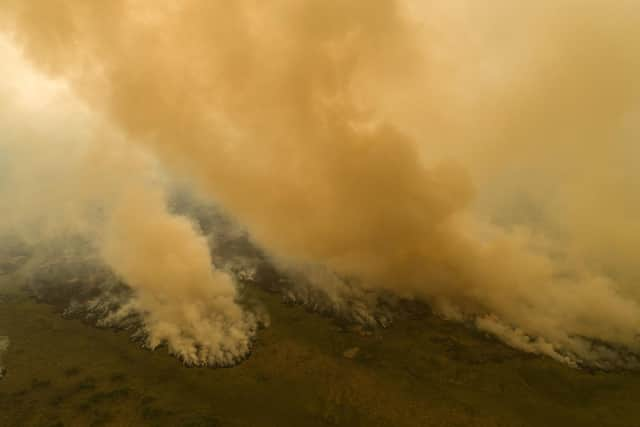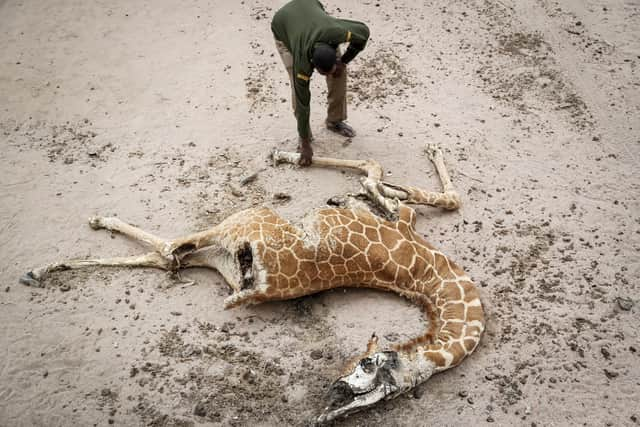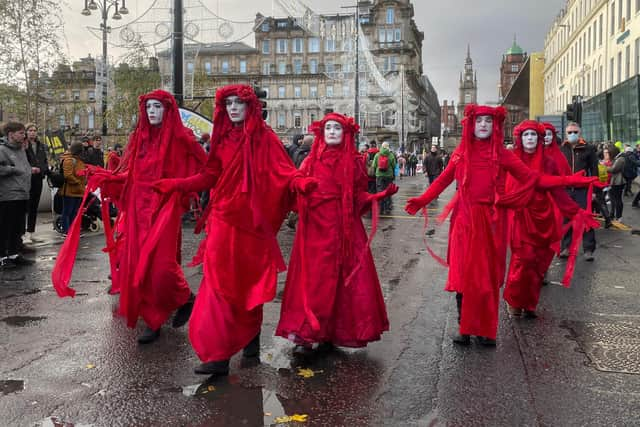Climate change: UN's IPCC climate report is 'direst' warning yet on mankind's path to destruction of the planet
Commenting on the latest in a series of reports from the Intergovernmental Panel on Climate Change (IPCC), Antonio Guterres said the evidence showed an “atlas of human suffering” caused by rising global temperatures.
He described the continued use of coal as “criminal” and said the world’s biggest environmental polluters were “guilty of arson of our only home”.
Advertisement
Hide AdAdvertisement
Hide AdThe publication is the second of three major reports from the IPCC and its first since the COP26 summit, held in Glasgow in November.


It brings together more than five years of work by scientists across the globe.
Titled Climate Change 2022: Impacts, Adaptation and Vulnerability, the report concludes climate change is fast approaching the point of no return.
It shows the pace and scale of impacts caused by rising global temperatures is accelerating rapidly, bringing devastating consequences and outstripping current actions to curb them.


But it says swift and concerted action to slash greenhouse gas emissions and help the most vulnerable places adapt could stave off the worst effects for people and the planet and keep warming to the agreed ‘danger’ limit of 1.5C above pre-industrial levels.
Recommendations focus on restoring nature and harnessing it to help tackle environmental breakdown as well as stepping up climate actions in towns and cities.
The findings, produced by more than 270 international experts, have been signed off by 195 countries.
The warmest seven years in recorded history have all been since 2015, with the top three being 2016, 2019 and 2020.


Advertisement
Hide AdAdvertisement
Hide AdEmissions from burning fossil fuels has been identified as the biggest single driver of climate change.
The impacts are already being felt across the world, with some of the poorest countries most badly affected.
The report calls for bigger efforts to help protect these communities, which have contributed the least to global emissions.
Even Scotland and the UK are experiencing shifting conditions.
Scotland’s warmest years on record have all occurred after 2017, while winters since 2010 have been nearly 20 per cent wetter.
Scottish Greens environment and climate spokesperson Mark Ruskell said the report demonstrated the need for immediate action to secure “a liveable future” and that solutions already existed.
“This report makes clear that not only do we need to escalate climate action, but we need to do so now – we are running out of time," he said.
He added: “In the wake of the illegal Russian invasion of Ukraine, it is more important than ever that Europe ends its over-reliance on fossil fuels.
Advertisement
Hide AdAdvertisement
Hide Ad“Investing in Scotland’s renewables potential brings benefits for the economy, planet and for long-term peace and security."
Fabrice Leveque, climate and energy policy manager for WWF Scotland, said: “This is the starkest warning yet of the catastrophic effects of climate change on human society and the natural world, and that there will be a higher price to pay if we fail to act now.
“By protecting and restoring Scotland’s nature – our woodlands, our peatlands and our coastal habitats – we will cut carbon and adapt to our changing climate.
“How we produce our food and farm our land is also going to be crucial to locking in carbon in the future.”
A message from the Editor:
Thank you for reading this article. We’re more reliant on your support than ever as the shift in consumer habits brought about by coronavirus impacts our advertisers.
If you haven’t already, please consider supporting our trusted, fact-checked journalism by taking out a digital subscription.
Comments
Want to join the conversation? Please or to comment on this article.
